A quick word of introduction. My name is Stuart McDonald and this is Couchfish—the perfect tub of ice-cream for the traveller stranded on the couch. The newsletter has both a paid edition which traces a fantasy itinerary through Southeast Asia, and a free one that covers, well, everything else. If you’d like to support me finding more tourism stuff to moan about, please consider becoming a paid subscriber. Thank you.
Earlier this week, The Guardian ran a story about a UK traveller who was badly injured while riding an elephant in Thailand. The accident happened over twenty years ago (in 2002), and the story focuses on the tourist’s experience and subsequent recovery. Thinking back to when she got onto the elephant, the tourist says:
“I remember climbing on and thinking: ‘I don’t know about this’.”
On one hand, it’s a feel-good story—tourist overcomes adversity and all that. Less so though if you’re the elephant concerned, the story suggests the elephant may have been euthanised after the incident—something that I struggle to believe—but at the end of the day, nobody seems to be sure. What matters, at least as far as the story is concerned, is that the tourist survived and moved on with their life.
To be fair, twenty years is a long time, and back in 2002 calls for the banning of elephant riding were far from the mainstream calls they are today. Indeed, it would be another eight years before the Intrepid Foundation would underwrite a report by World Animal Protection titled Wildlife on a Tightrope. The report served as a watershed moment in the better protection of wildlife—including elephants—in Thailand and elsewhere.
Totally natural. Chained elephant awaiting passengers in Luang Prabang, Laos. Photo: Stuart McDonald.
With this in mind I think it is a bit unfair to give the tourist concerned a hard time about getting on an elephant in the first place. The journalist, not so much. It seems, if nothing else, a missed opportunity to better highlight the elephant abuse which continues to this day in Thailand—solely to feed the desires of tourists.
The problem is far more widespread than Thailand, and affects wildlife for more varied than elephants. From patting drugged tigers in zoos, to swimming with captured dolphins in chlorinated pools, attractions where the abuse of animals is central to the “tourist experience” remain common right across the region. Indeed a few years ago when I was in Lamalera in eastern Indonesia, I discovered one can pay 200,000 rupiah to go out on a boat to spear a dolphin.
What?
Whale shark awaiting butchering at Lamalera, Indonesia. Photo: Stuart McDonald.
Unlike the above elephant-rider twenty years ago, travelling in Southeast Asia today and saying “Oh I didn’t know better” is a pretty hard call. And yet, take a quick look at on- and offline tour providers and it would seem plenty still have their head in a hole. Travel review garbage fire TripAdvisor, has for years claimed to not monetise “animal attractions,” and yet if I look at their page on Oslob, the top four recommended activities involve whale sharks. For each, TripAdvisor lists—on a commission basis—paid tours. Need I say it again, the people who run TripAdvisor are utter reprobates. Do not use that website.
Hang on, how did I get from Thailand and elephants to some joint called Oslob and whale sharks? Let me explain.
Oslob sits on the southeast coast of the island of Cebu in the Philippines. At first glance there may be nothing to distinguish it from other seaside spots, but right offshore, whale sharks swim. The Philippines claims almost 2,000 whale sharks—the second largest population on the planet. While hunted for generations, Filipino law protected the species in 1993 and today they feature on the 100 peso note rather than the wet market floor. In theory anyway.
All good then. Photo: Pinoy Numismatist Network and Bangko Sentral ng Pilipinas., Fair use.
Tourists visit Oslob to swim, dive, and snorkel with whale sharks—filling Instagram with their stunning whalies. The industry however is widely considered to be a sustainability train wreck. Every dive shop I spoke to in Moalboal (a southern Cebu dive centre I spent a week in—I didn’t visit Oslob) emphatically said not to go and suggested other destinations where whale sharks could be observed with a modicum of sustainability in mind. If you don’t want to listen to me and my dive shop vox pop, how about the Large Marine Vertebrates Research Institute Philippines? They pull no punches in their appraisal of the place. They write—sorry for the long quote, but it all matters:
“Oslob, Cebu is home to the largest non-captive provisioned whale shark tourism interaction in the world. The town gained international publicity after the local government approved the feeding of whale sharks in the fishing Barangay of Tan-awan in 2012. What began as a small tourist operation has since exploded into a rapidly growing and mostly unregulated industry.
The whale shark feeding activities in Oslob have resulted in a boom in the local economy. This has come with a significant impact on the natural behavior of the whale shark, affecting its movement, residency, and local marine habitat. These effects have raised serious concerns over the sustainability of the operation.
LAMAVE in-water researchers collected daily data on the whale sharks of Oslob from March 2012 to January 2020. These eight years of work also included stakeholders’ meetings, local, regional, and national level training and workshops, and internationally published scientific studies.
Despite our best efforts, there was a perpetual unwillingness among local and regional stakeholders to shift away from unsustainable tourism and management practices. Due to this, LAMAVE decided to place our work in Oslob on hold. We will only resume this project if substantial improvement in the management of the activities is implemented.”
The above mob isn’t the only one saying stuff like this, National Geographic and WWF are on record with their concerns. Others disagree—including a legion of travel bloggers on comped trips—and this frontend piece to an academic paper which sees Oslob as a win for whale sharks. Others, who should do better, are more circumspect. Consider this from Lonely Planet in their 2018 Philippines guidebook:
“Regardless of how you feel about the ethics of feeding wild animals, you may or may not be impressed with the Oslob whale-shark interactions. While carefully composed photos may appear to show your friends swimming alone with these leviathans in the big blue, the reality is different. There are hundreds of people in the water at any one time, most of them watching up to a half-dozen or so whale sharks hover near the surface begging for food.
…
If you prefer a more natural experience, you’ll likely find the whale-shark interactions programs in Donsol and Pintuyan (Southern Leyte) more to your liking.”
I’m not sure what to make of that, other than to wonder why it is so hard for Lonely Planet to simply say “Do Not Go.” Also their using “whale-shark” and “whale shark” in the text is them not me.
A Moalboal guesthouse explains to guests why they do not support whale shark tours. Photo: Stuart McDonald.
Below the above-mentioned LAMAVE text, they go on to list a litany of research findings indicating just how problematic the scene is. One paper jumped out as me, and thinking of our elephant rider’s trepidation, it is worth a closer look.
“A guilty pleasure: Tourist perspectives on the ethics of feeding whale sharks in Oslob, Philippines” (free version of full paper here) looks at the ethics of what is going on at Oslob, with particular attention given to participants’ motivations. Both through interviews and an analysis of reviews of TripAdvisor, they found some pretty interesting stuff, including this: A significant number of tourists knew it was bad—but not only did it anyway, but recommended it to others. They write:
“TripAdvisor comments mentioning ethical issues with this activity were coded and classified. Ethical concerns were mentioned in 27.2% (N = 254) of all TripAdvisor reviews analysed. The TripAdvisor analysis identified three types of commenters concerned with the ethical nature of whale shark provisioning in Oslob. The “guilty pleasure” group was aware of the moral and ethical issues of provisioning a threatened species for tourism purposes, but still chose to do the tour and recommended it to others (i.e., a score of 4 or 5; Table 5).”
As with Thailand’s elephants, there are (mostly) financial upsides to whale shark tourism. The paper considers this, noting:
“The provisioned activities in Oslob are worth an estimated US$5 million to the local economy and have allowed for the socioeconomic development of the community. Prior to the start of these activities, many of the fishermen turned tour operators in Tanawan were living off just US$1 per day whereas now they can afford to put children and extended family through school, pay for hospital treatments for extended family, food, motorbikes and concrete homes.”
This is persuasive to a point, but perhaps an important consideration is the series of kleptocratic regimes that have run the Philippines for decades. What role did those thieving scoundrels have in a situation where a 2010 fisherman is living off of $1 a day?
It sure as hell wasn’t the whale sharks’ doing.
In summary, if what you are doing while on holiday in Southeast Asia involves touching an animal, you almost certainly should not be doing it. It is that simple.
Couchfish is 100 per cent independent and reader-supported. If you’re not already a subscriber, and you’d like to show your support, become a paying subscriber today for just US$7 per month—you can find out more about Couchfish here—or simply share this story with a friend.
Don’t forget, you can find the free podcasts on Apple, Pocket Casts and Spotify as well as right here on Couchfish.

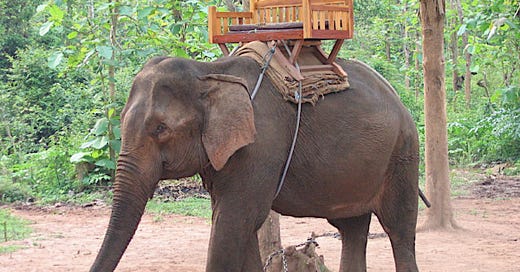






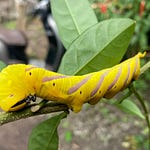


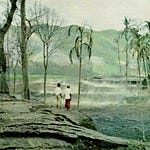
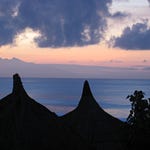
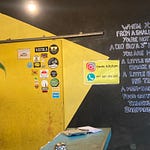
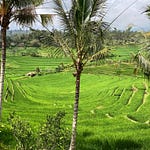

Share this post